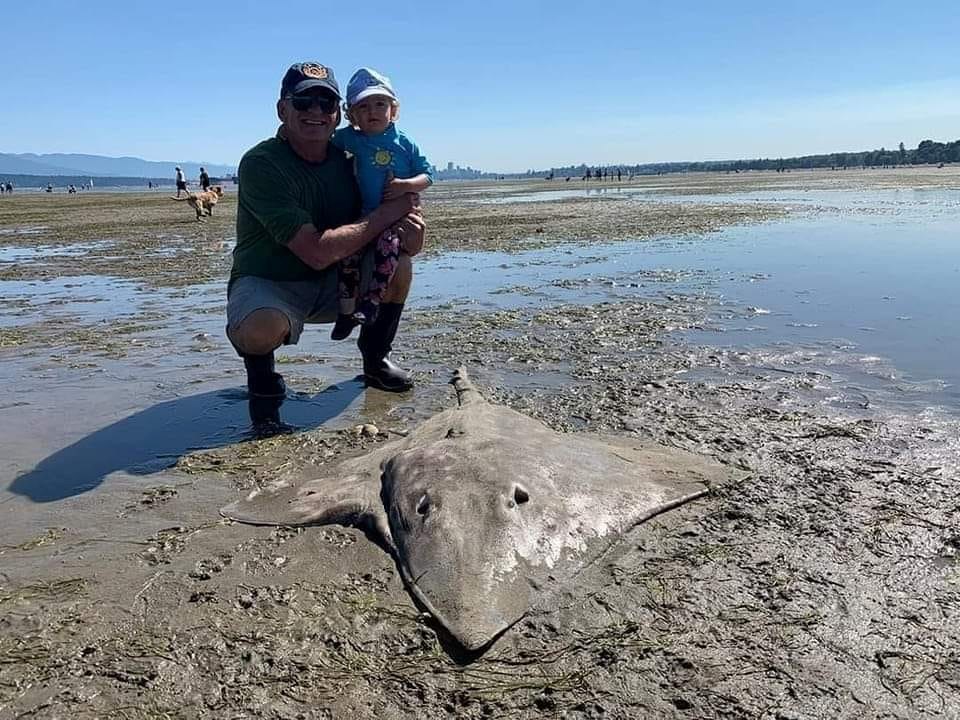Have you ever seen a skate at the beach?
Not someone skating, or a skater, but a skate. They're a type of fish related to rays, and could be mistaken for a stingray. live in B.C.'s waters, but they're not one of the more famous or flashier fish in the area.
They are also extremely good at blending into the sand, which may be why many people seemed to miss the earlier this month, until Rudy Pospisil and his grandson came by.
The pair were out on the beach during low tide when they spotted the unusual creature which had been trapped by the outgoing tide. It wasn't a small fish; Pospisil says it was 1.5 to 2 m from tip to tip. It's not clear what species it is; Big Skates, a local species, likes shallow waters and grows to 2 m.
Luckily, the fish was still alive.
The pair kept the stranded skate wet and tried to move it into some standing water nearby.
"We pulled it by its tail into a tide pool," Pospisil tells V.I.A. "Skates do not have poisonous barbs like a stingray. They have small thorns to be wary of like a small prickle bush."
Once in the water, the skate was able to breathe again; Pospisil adds that the tide was coming in to give it a route to the ocean again.
Local firefighter no stranger to animal rescues
Pospisil has a penchant for helping creatures in need. A retired firefighter with the Burnaby Fire Department, he says he has empathy for animals in need.
"I just feel so sorry for animals that are injured as they can't communicate as the people I have attended to in accidents," he explains.
He's saved his fair share, too. When he was a firefighter he was diagnosed with prostate cancer; after it went into remission the first time he decided to .
"I cycled around the world and saw countless injured animals on the roadside. I always stopped," he tells V.I.A. "If they were alive, I would bring them in my back rack carrier to the next town or to camp to care for them or the wildlife rescue or bury them if they died."
Pospisil notes there were a couple of exceptions, like snakes in Australia. He suggests others should help animals when they see they're in need.
"Never walk or drive by an injured animal," he says. "At the very least move them off the road and call a ."


